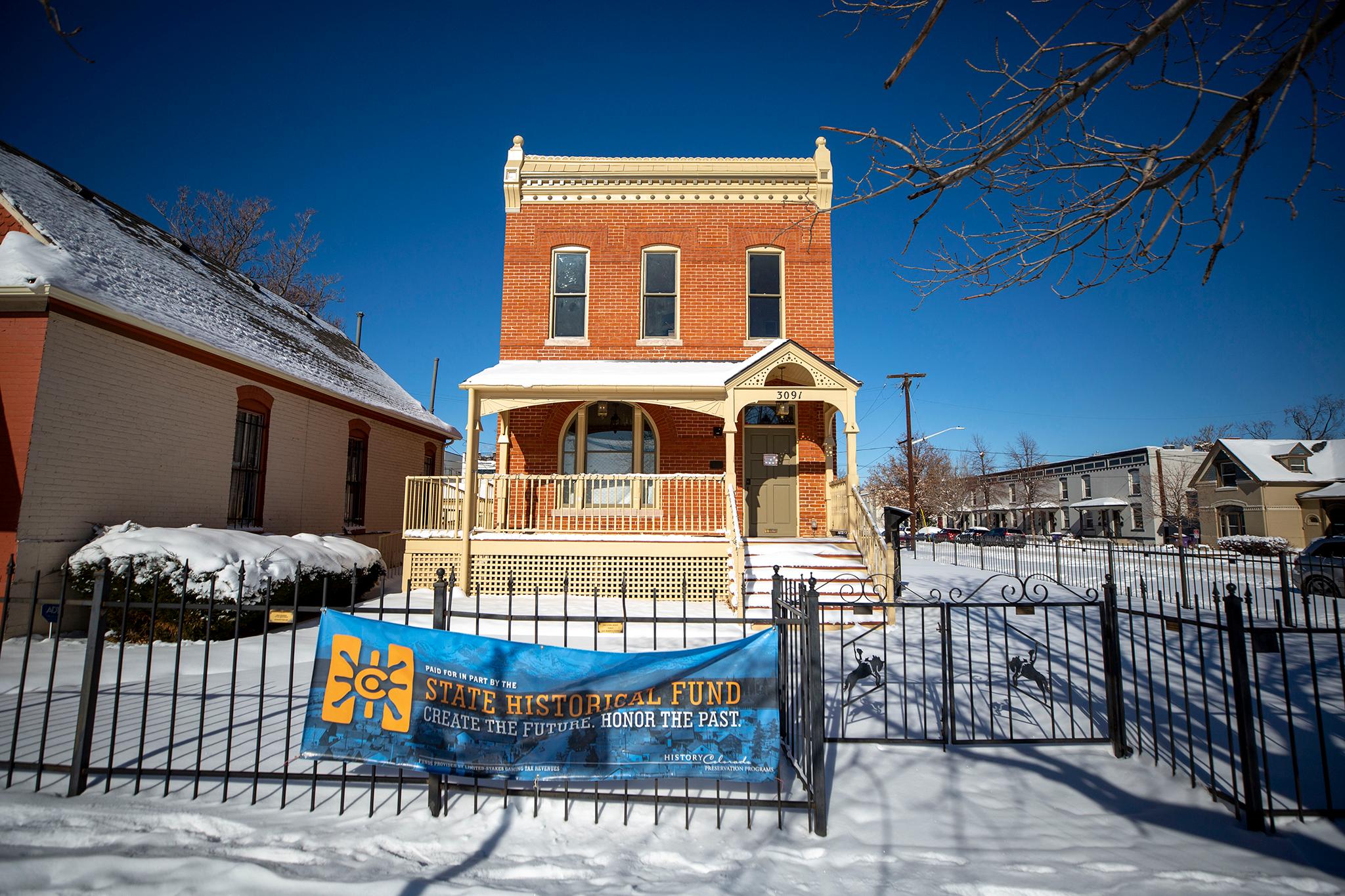For almost two years, the Black American West Museum & Heritage Center's doors have been closed to the public for renovation. Back in 2020, the museum was awarded a couple of grants for the restoration of its historic building, an old 19th century Victorian house that was once home to Dr. Justina Ford, the first licensed Black woman physician in Colorado.
"Then COVID hit, and we all were forced to shut down," said Daphne Rice-Allen, the museum's board of directors chair. "It was sort of OK, because we had to be closed anyway. So it was a help on one hand. It was a bit of a hindrance on another."
While the pandemic shut down the museum's operations, it also posed an opportunity to refresh the space and consider how best to further the museum's mission to emphasize the role that African Americans played in the development and settlement of the West.
The building was originally located at 23rd and Arapaho, but was physically moved in the 1980s to its current location at 3091 California St.
Its exterior looks much the same as it did when Ford lived there. Rice-Allen said that because the house is on the National Register of Historic Places, museum volunteers weren't allowed to change much. Instead, the renovation has primarily been about keeping the original façade intact.
"They stripped off the old paint. There were approximately 400 bricks that had to be either replaced or reversed or cleaned. New mortar put in and new windows," Rice-Allen said. "The windows are all historic. Everything is still in its original depiction."
With some additional COVID funding, the museum was able to restore its interior as well. In the months that the museum has been closed, volunteers have replaced the flooring and repainted the walls. In the meantime, staff also have been taking inventory and cleaning the museum's exhibits.
They're also looking at changing the layout of the exhibit area and modernizing the space.
Some of those changes include updated technology, like new lighting and multimedia elements like monitors. But another big consideration is accessibility. For example, Rice-Allen said, some visitors might not be able to access the museum's second floor. Because of the building's National Register of Historic Places status, volunteers can't make major adjustments to the stairs. Instead, they're working on making a video of the second floor exhibits for visitors who can't use the stairs.
For more than 50 years since it was founded by storyteller Paul Stewart, the museum has highlighted the history of Black cowboys, farmers, ranchers, miners and business owners in Colorado and the Rocky Mountain region.
In addition to Stewart's own original collection, the museum displays exhibits about Ford and the history of the house itself.
Rice-Allen said that while she hopes the museum will reopen sometime in February 2022, it doesn't yet have a set reopening date. The board members are all unpaid volunteers with full-time jobs and often have to work on the museum on weekends or after work.
"It's been a lot to try to keep our website updated, our newsletter current, as well as getting the exhibits together," she said. "It's been more than a notion to pull this together. And I know people are anxious. We're anxious to be open. But at this point, I don't know for sure."
Rice-Allen recommends people check the BAWM website for opening date updates. In the meantime, she says people can support the museum's mission by subscribing to the BAWM's newsletter, which often shares bits of historical information. She also recommends nearby cultural institutions like the the Blair-Caldwell African American Research Library in Five Points, the Barney Ford House Museum in Breckenridge and the African-American Genealogical Society of Colorado Springs.
"There are going to be an array of events coming up for Black History Month, but I would encourage people not to just cram it all in during Black History Month," she said. "There's Juneteenth. There's the Black Arts Festival. I know Aurora has a couple of cultural festivals."
She said it's important to stay active and engaged with history.
"If you don't know your past you're doomed to make mistakes in the future," she said. "Black history is critical in that that we are as vital a part of any history of any component of the growth of Colorado, of the Western United States. And in some cases, such as Clara Brown, Barney Ford, James Beckwourth, Dr. Justina Ford, those were pioneers that were the backbone of what made Colorado great."
Rice-Allen referred to a Carter G. Woodson quote: "If a race has no history, if it has no worthwhile tradition, it becomes a negligible factor in the thought of the world, and it stands in danger of being exterminated."












